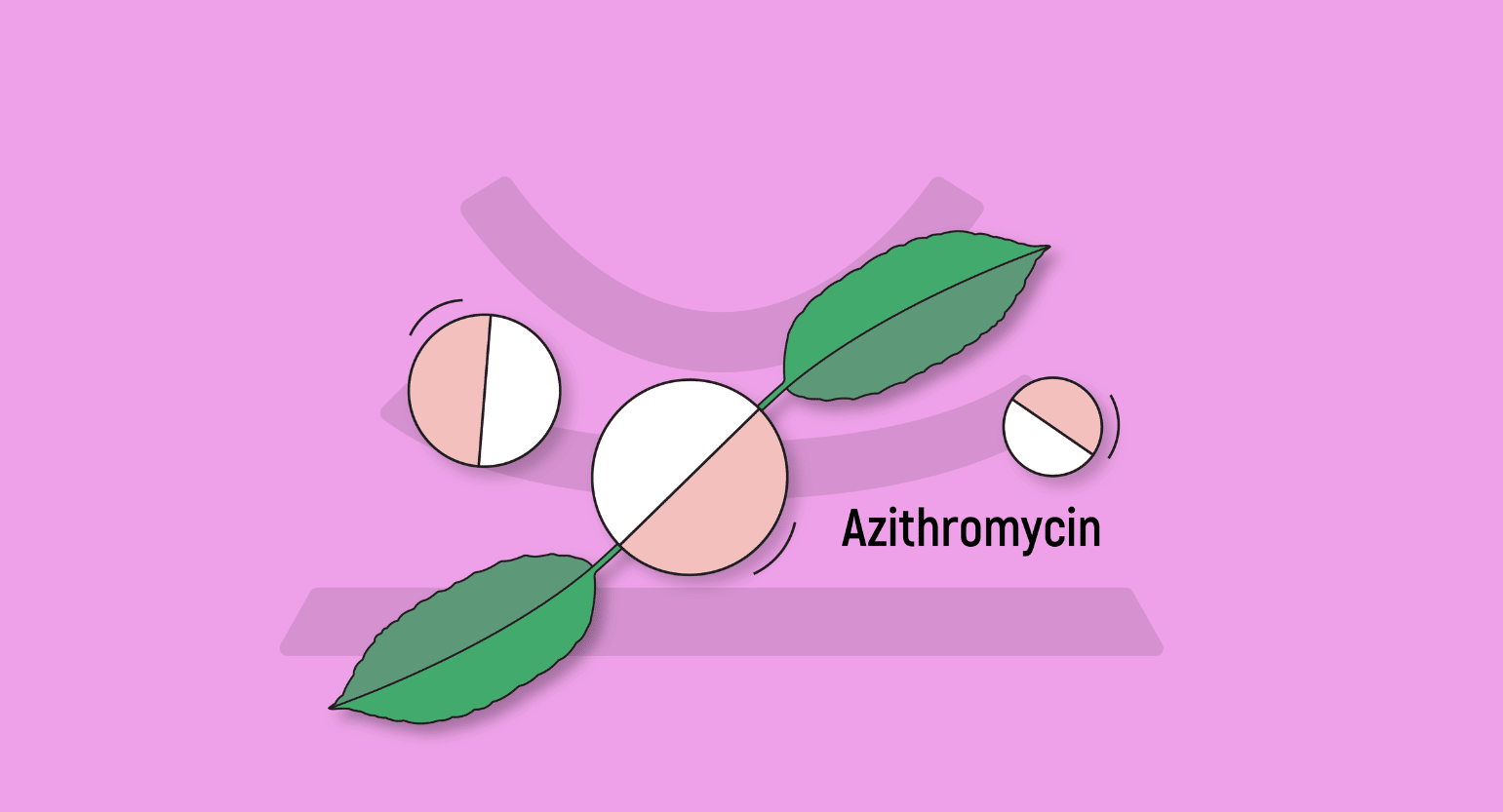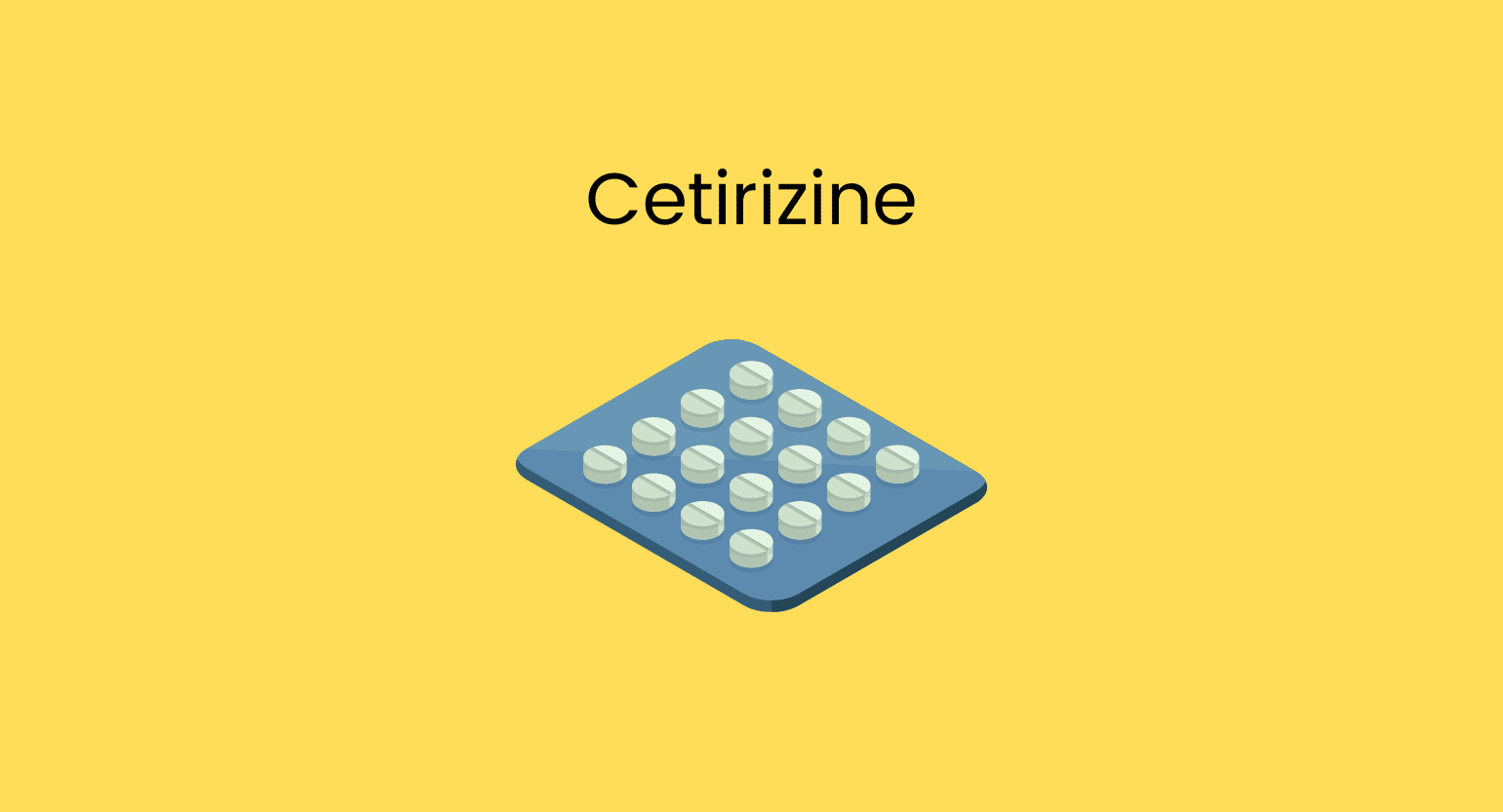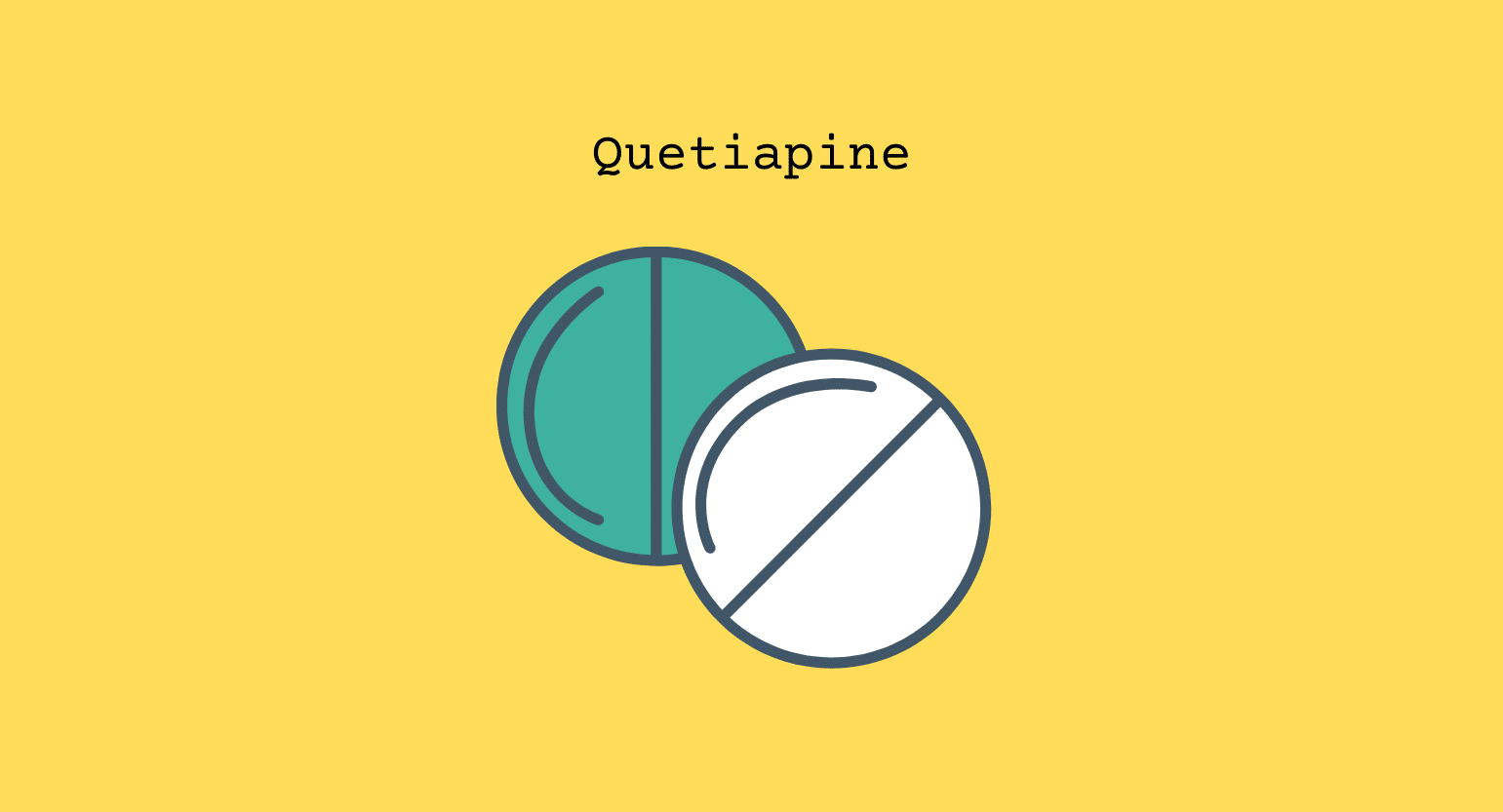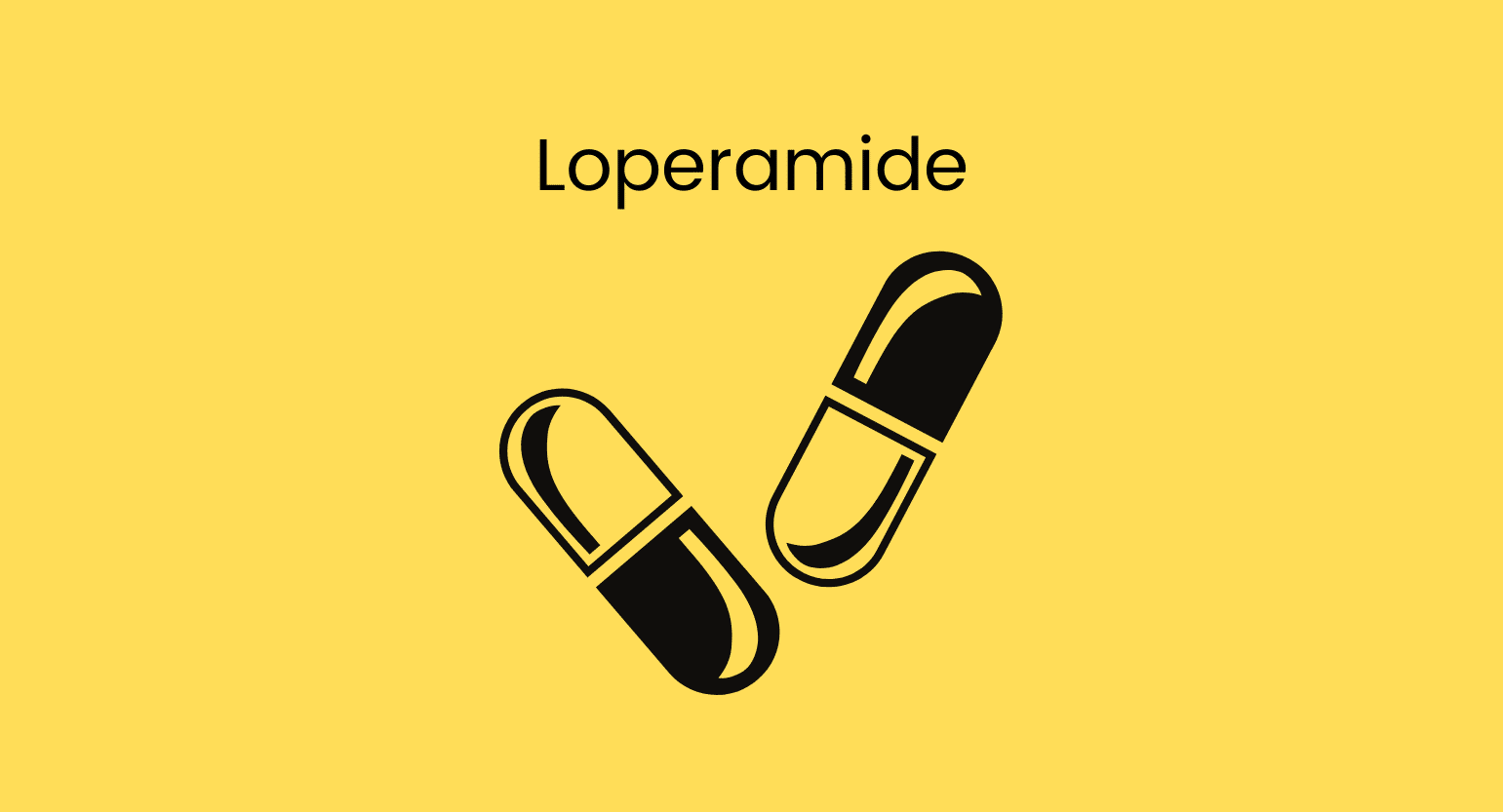Does Kratom Interact With Azithromycin (Zithromax)?
Taking kratom and azithromycin (Zithromax) can cause an interaction with a moderate to high risk of experiencing side effects.
Kratom can interact with antibiotics, possibly binding to them and making them ineffective. Together, kratom and azithromycin can increase the risk of cardiac arrhythmias [1, 2]; this becomes more likely with long-term use of kratom or with higher doses.
WARNING: always talk to your doctor before using kratom with azithromycin.
When taking these two compounds together, kratom might interact with azithromycin in the following way:
Increased Effect (Agonistic Interaction)
When two compounds have similar effects on the body and are taken simultaneously, one compound might potentiate the effects of the other. This phenomenon is known as an agonistic interaction.
In one hand, kratom is presumed to cause cardiac arrhythmias via blockade of cardiac K+ channels, subsequently prolonging the QT interval and thereby precipitating ventricular arrhythmias.
However, research shows that kratom’s QT prolongation and cardiac side effects are associated with prolonged use or high doses [3].
On the other side, studies have shown an association of azithromycin with QT prolongation leading to life-threatening arrhythmia called torsade de pointes. Risks are higher for females and older individuals, those with heart disease, and exposure to other QT-interval prolonging drugs or metabolic inhibitors, hypokalemia, and bradycardia [4].
In short, using kratom and azithromycin together can increase the risk of QT prolongation in ECG, leading to cardiac arrhythmias.

Similar Medications: Kratom & Antibiotics
Kraton has similar interactions and causes side effects when combined with other antibiotics like azithromycin.
Here’s a list of antibiotics that could interact with kratom:
- Amoxicillin
- Cephalexin
- Clindamycin
- Penicillin
This combination has a moderate to high risk of causing a dangerous interaction. Always consult with your doctor before using them together.
Is It Safe to Take Kratom & Azithromycin (Zithromax) Together?
No, this combination is not safe. Kratom and azithromycin (Zithromax) have the potential to cause prolonged QT intervals leading to life-threatening cardiac arrhythmia. When these medicines are used together, the risk for arrhythmia further aggravates.
Always inform your doctor if you are taking kratom and you receive a prescription for azithromycin.

What Is Azithromycin (Zithromax)?
Azithromycin (Zithromax) belongs to a group of medicines called macrolide antibiotics. The compound was discovered in 1980 by the pharmaceutical company Pliva, and they patented it in 1981.
In 1988, azitromycin was approved for medical use under the brand name Sumamed. Pfizer launched azithromycin under Pliva’s license with the brand name Zithromax. The patent for the drug ended in 2005, opening the door for other companies to manufacture it.
Azithromycin can treat infections such as pneumonia, ear, nose, throat, sinuses, skin infections, Lyme disease, and some sexually transmitted infections (STIs).
Azithromycin Specifications
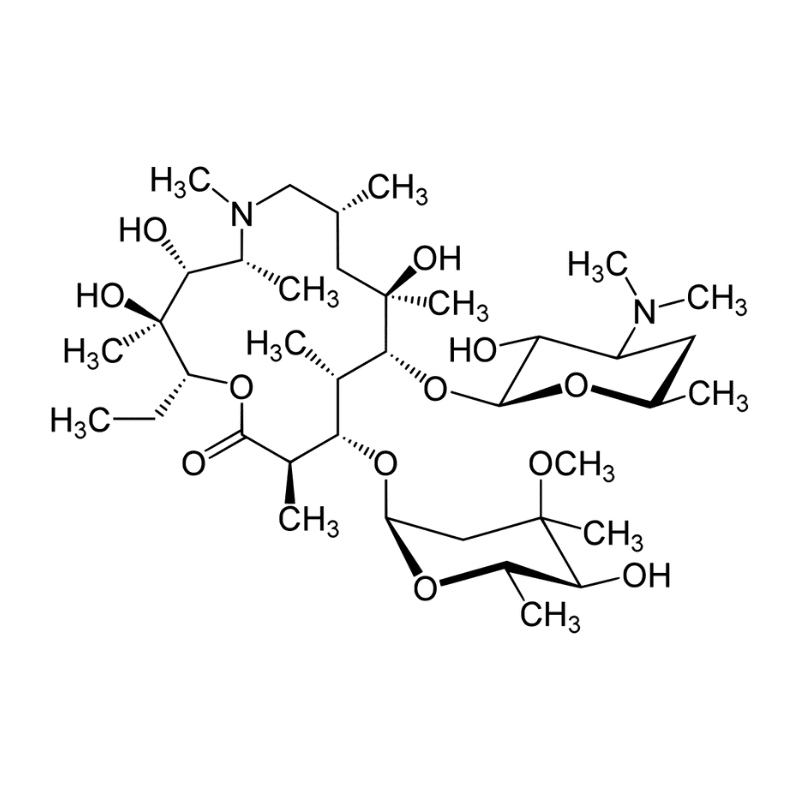
| Drug Name | Azithromycin |
| Trade Name | Zithromax, Zomax, Aziwok |
| Classification | Macrolide antibiotics |
| CYP Metabolism | None |
| Interaction With Kratom | Agonistic, metabolic competition |
| Risk of Interaction | Moderate to high |
Other Names for Azithromycin
Azithromycin is sold under many different names. All share the same risk and potential interactions with kratom.
Other names for azithromycin include:
- Zithromax
- Zomax
- Aziwok
What Does Azithromycin Do?
Azithromycin is a medicine used to treat a variety of bacterial infections. Furthermore, It can also help long-term to prevent chest infections in people who keep getting them. It also has anti-inflammatory properties and can be used to reduce inflammation in acute exacerbation of chronic obstructive pulmonary disease (COPD).
It inhibits RNA-dependent protein synthesis at the chain elongation step and works by binding to the 50s ribosomal subunit resulting in blockage of transpeptidation and protein synthesis. This stops bacterial multiplication and helps treat the infection but will not work for viral infections.
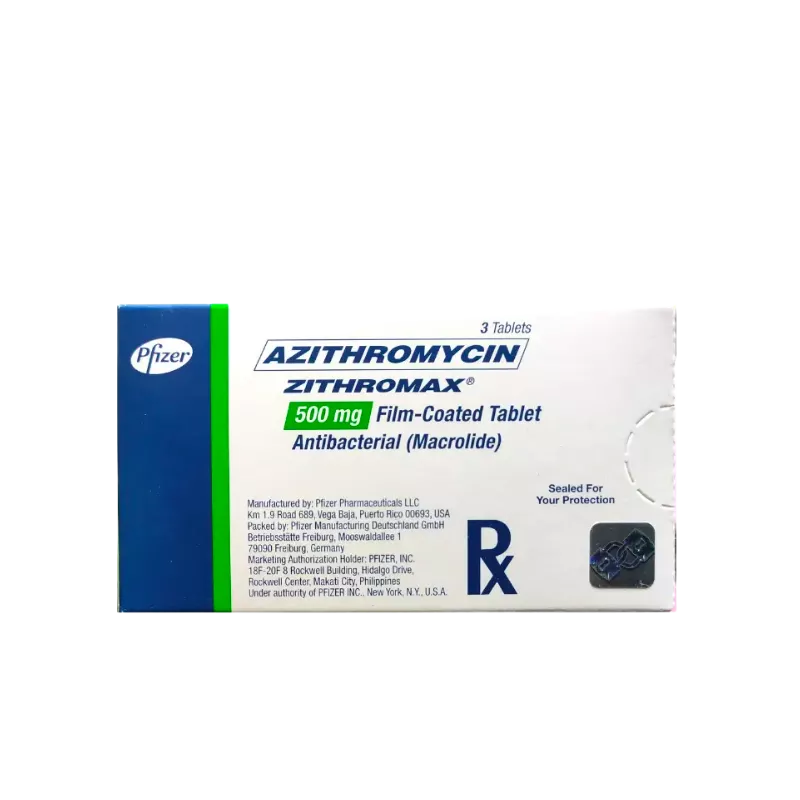
What Are the Side Effects of Azithromycin (Zithromax)?
Azithromycin is a commonly prescribed antibiotic, but there are a few side effects of the medicine that you need to be cautious about.
The list below is some common side effects of azithromycin. You might need to consult your doctor if these symptoms become severe.
- Change of taste sensation
- Diarrhea
- Dizziness
- Headache
- Loss of appetite
- Nausea
- Tiredness
- Vomiting
Here are some severe side effects of azithromycin. If you develop any of these, you must see your doctor immediately.
- Arrhythmia
- Diarrhea with muscle cramps
- Hypersensitivity
- Jaundice
- QT prolongation
- Pancreatitis
- Tinnitus
- Vertigo
Contraindications of Azithromycin (Zithromax)
Azithromycin should not be taken in some conditions. They include the following:
- Known hypersensitivity to azithromycin, erythromycin, other macrolides, or any component of the formulation
- History of cholestatic jaundice/hepatic dysfunction with prior azithromycin use
- Concurrent use of Pimozide
Important Points to Know About Azithromycin (Zithromax):
Prolonged QT intervals increase the risk of developing cardiac arrhythmia and torsades de pointes.
Consider the chances of QT prolongation for high-risk groups, including :
- Patients with a known history of the prolonged QT interval, torsades de pointes, congenital long QT syndrome, bradyarrhythmias, or uncompensated heart failure
- Patients on drugs known to prolong QT intervals like kratom
- Patients with ongoing proarrhythmic conditions such as uncorrected hypokalemia or hypomagnesemia and clinically significant bradycardia

What Is Kratom?
Kratom (Mitragyna speciosa) is a tree native to Southeast Asia that has been used as traditional medicine for centuries. The leaves contain potent alkaloids, some of which are similar in action to opioids like morphine.
Kratom is not an opioid; however, it has pain-relieving effects similar to opioid drugs and shares side effects and safety concerns, though to a far lesser degree. Kratom is much safer and, though addictive, is unlikely to cause severe withdrawal symptoms, overdose, or respiratory depression.
Kratom is consumed for various purposes, including [5]:
Current research backs up what users have known for a long time — kratom is incredibly effective and safe when used responsibly.

How Does Kratom Work?
Kratom does not denote a single, specific compound but rather a cocktail of the psychoactive alkaloids occurring naturally in the plant. More than 40 of these compounds have been identified. The main alkaloids are mitragynine and 7-hydroxymitragynine and can modulate opioid receptors, acting as partial agonists at mu-opioid receptors and competitive antagonists at kappa- and delta-opioid receptors [6].
Besides acting on the opioid receptors, kratom also affects other brain receptors, such as adrenergic, serotonergic, and dopaminergic receptors, which explains its complex pharmacological profile. However, the characterization of effects at these other targets remains extremely limited.
Due to these actions, kratom has been used traditionally for its stimulating, mood-elevating, anxiolytic, and analgesic effects, attracting significant attention in Western cultures as alternative medicine.
Side Effects of Kratom
Kratom is generally safe for most people, though large doses can cause side effects. Some of the side effects of kratom are mentioned below:
- Anxiety
- Constipation
- Dizziness or the wobbles
- Headaches
- Heart palpitations
- Irritability
- Nausea
- Sedation
More serious side effects can include the following, though most of these are extremely rare and usually come with long-term and heavy use:

Key Takeaways: Is It Safe to Take Azithromycin (Zithromax) With Kratom?
The US FDA does not approve kratom use, but the World Health Organization has studied it and determined it is not a compound of concern — it is safe when not abused.
Azithromycin (Zithromax) is an antibiotic commonly prescribed for various bacterial infections. There is enough evidence to suggest that using kratom will increase the risk of cardiac arrhythmias when used along with azithromycin. Hence, this combination is not considered safe.
Inform your doctor regarding any medicines, herbal supplements, or complementary medicines whenever azithromycin is prescribed.
- Winton, J. C. (2013). Azithromycin/methadone interaction. Reactions, 1441, 2.
- Amer, S., Hassan, S., Shariffi, M., & Chueca, L. (2013). QT interval prolongation associated with azithromycin/methadone combination. West Indian Medical Journal, 62(8), 864-865.
- Leong Bin Abdullah, M. F. I., & Singh, D. (2021). Assessment of cardiovascular functioning among regular kratom (Mitragyna speciosa Korth) users: A case series. Frontiers in pharmacology, 2099.
- Choi, Y., Lim, H. S., Chung, D., Choi, J. G., & Yoon, D. (2018). Risk evaluation of azithromycin-induced QT prolongation in real-world practice. BioMed research international, 2018.
- Eastlack, S. C., Cornett, E. M., & Kaye, A. D. (2020). Kratom—Pharmacology, clinical implications, and outlook: a comprehensive review. Pain and Therapy, 9(1), 55-69.
- Kruegel, A. C., & Grundmann, O. (2018). The medicinal chemistry and neuropharmacology of kratom: a preliminary discussion of a promising medicinal plant and analysis of its potential for abuse. Neuropharmacology, 134, 108-120.
- Kamble, S. H., Sharma, A., King, T. I., León, F., McCurdy, C. R., & Avery, B. A. (2019). Metabolite profiling and identification of enzymes responsible for the metabolism of mitragynine, the major alkaloid of Mitragyna speciosa (kratom). Xenobiotica, 49(11), 1279-1288.
